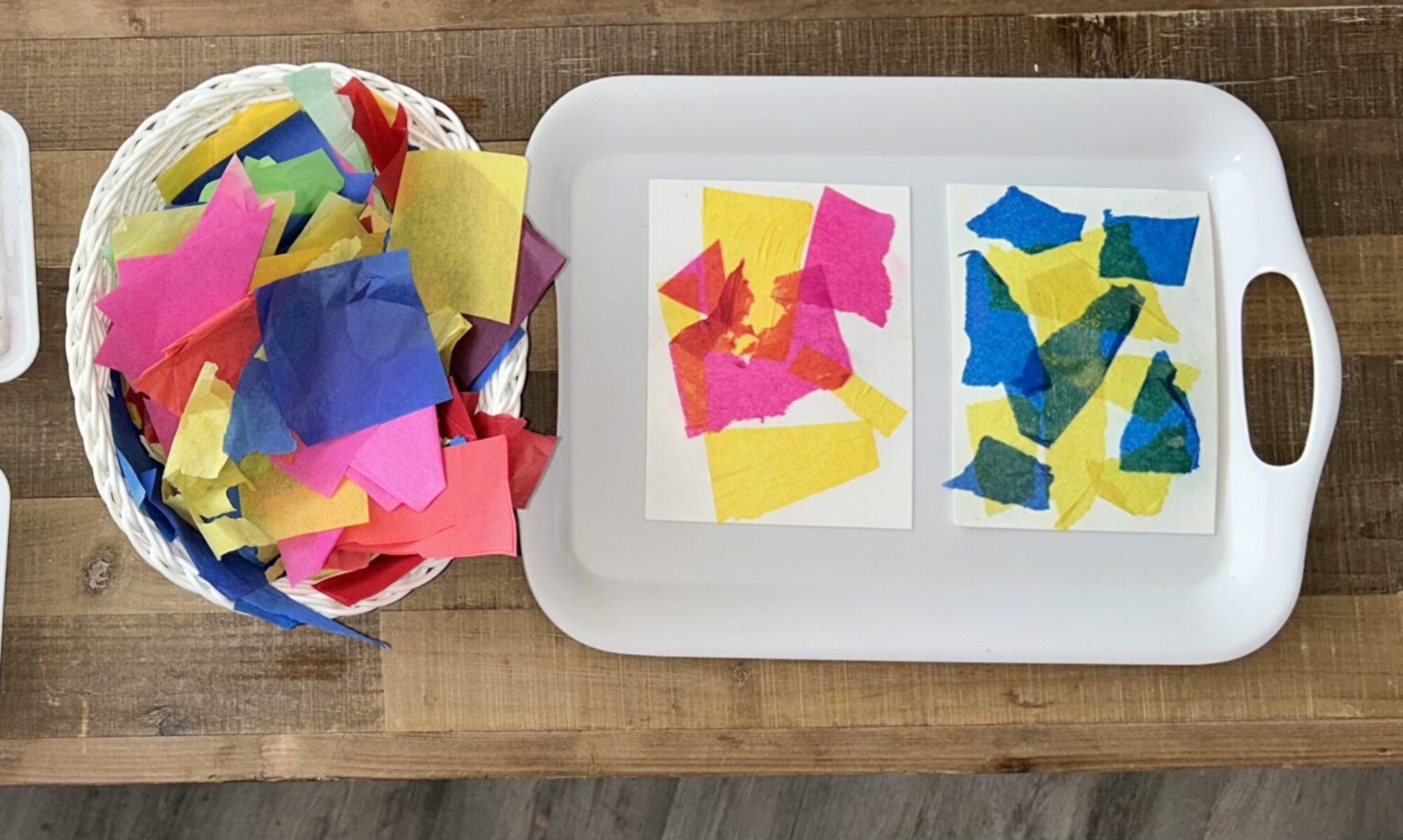Looking for fun Valentine’s Day art projects for your classroom? I love making homemade cards for my family, friends, and special people in my life, and I’m sure your early childhood Montessori students would too!
I started a tradition of making potato Valentine cards with my young art students and every year, they look forward to this art project.

Here’s a quick and fun way to bring a little love into your classroom—and all you really need is a few potatoes. The spud makes a great, inexpensive stamp and are easy for little hands to grasp and hold. Plus, you can carve almost any shape you want out of a potato, so while I do this art lesson with my students for Valentine’s Day, you can really do it with your Montessori class any time of the year!
Potato Stamping Supplies
- Potatoes — large Russet potatoes work best; organic potatoes are even better because they have no pesticides sprayed on them
- Knife — a medium size paring knife (you may want to cut the potatoes ahead of time, that way you don’t have to worry about safety)
- Newspaper — a few sheets to lay out and keep the work area clean
- Paint Brushes, Sponges, or Popsicle Sticks — to spread paint on the stamps
- Paints — tempera, acrylic, watercolor, and/or natural veggie dye will work
- Paper or Card Stock — card stock, news print, construction paper, copy paper or any type of stationary cards
- Writing Utensils — Crayons, pencils, etc.; for Valentines, I usually put out warm colors (red, pink, purple, white, teal blue)
- Napkins — napkins or rags to clean off potatoes between use
- Water Jar — for cleaning paint brushes in between color changes

Potato Stamp StepsP
- Cut or carve a heart shape out of the potato.
- Pat dry the potato with a napkin or rag before stamping. Potatoes are a root vegetable, so they hold and release lots of water when cutting open; potatoes work much better at stamping and absorbing paint when they are dry.
- Cover the flat, stamp portion of the potato with paint.
- Press potato stamp on the paper and lift to see impression that’s been left.
Your students may need to practice a couple of times to thin out the layer of paint on the potato, which results in a clearer and better desired shape impression. I always tell kids to practice on a scrap paper before making their impressions on a nicer paper or card.

Potato stamping can be an earth-friendly art project! You can make this project totally earth-friendly by using recycled paper, organic potatoes, and non-toxic paints for kids! If you’re using veggie dyes, then you can even compost all your scraps once you’re done with this project.

Teachers Say…
I’ve had teachers email me later and tell me how they’ve started doing this Montessori art project in their classroom, and how their students have been making quick cards, banners, and gift wrap for different holidays and seasons throughout the year. Think about carving out leaves for fall, pumpkins for Thanksgiving, and trees and flowers for spring or Earth Day!

Want more ideas for Montessori art projects? Download the Ultimate Winter Arts & Crafts Idea Guide! It’s packed with a more than 40 of fun and educational Montessori art projects that’ll get your students pumped and excited about art!



All rights reserved © 2025, Nature of Art®
No part of this blog may be used or be reproduced in any manner whatsoever including reproducing, publishing, performing, and making any adaptions of the work – including translation into another foreign language without written permission except in the case of brief quotations embodied in critical articles and reviews. Nature of Art® Publishing P.O. Box 443 Solana Beach, California 92075.




